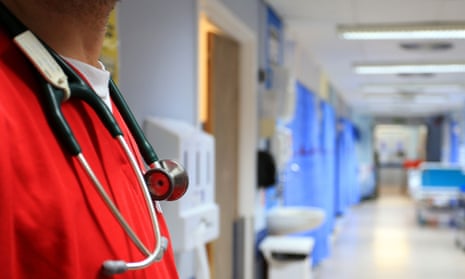Britain is about to start using information about millions of NHS patients’ medical histories to boost the search for cures for ailments such as cancer, asthma and mental illness.
Seven new “data hubs” are set to revolutionise medical research by giving doctors, scientists and academics access to unprecedented data about who gets ill in the first place and who responds best to treatment.
However, the move is likely to raise anxiety about possible breaches of patients’ privacy and also the commercialisation of patient records because drug companies are among those with whom the data will be shared.
Pharma firms including Novartis, Janssen and AstraZeneca will not be charged for having sight of the data and will use it to help develop therapies that will ultimately increase their profits.
The seven hubs, which will start work on 1 October, are being created by Health Data Research (HDR) UK. It is a non-profit-making body, independent of the government, funded by 10 organisations including the NHS’s National Institute for Health Research and the Wellcome Trust. It brings together 22 universities and research institutes in a common quest for new ways of combatting illness.
The HDR will facilitate access to information about patients’ treatment in hospitals across the UK, the results of x-rays and scans, what drugs people were prescribed and what sort of recovery people experienced. After publication, a spokesperson said data was not entering the hubs – “it will remain under the control of the current host organisation within pre-existing UK legal protocols for storage, security and access.”
HDR insists that all data processed through the hubs will always be strictly anonymised, to ensure that no details about an individual’s history or outcome are ever disclosed. Information gathered will be routinely “de-identified” before it is stored.
That will include data that is routinely collected, for example by the Hospital Episodes Statistics system, which records what happens to every patient who attends or is admitted to a hospital in England, and also details of which patients have already been given specific permission for it to be held and used for research purposes.
“Any decisions about how the data will be used will always put patient privacy, safety and benefit first and we have multiple safeguards in place to ensure this happens”, Dr Andrew Morris, the HDR’s director and a diabetes specialist, told the Guardian.
“The NHS organisations involved will, at all times, remain the data controllers and no personal data will leave the NHS”, he added.
One of the hubs, Data-Can, will focus exclusively on cancer, Britain’s second biggest killer. Another will specialise in eye health and another in inflammatory bowel conditions, such as Crohn’s disease.
Almost 120 public, private, academic and charitable organisations will participate, subject to what HDR says will be strict controls to ensure proper information governance. Researchers in the NHS, universities and institutes, as well as health charities such as Diabetes UK, Cancer Research UK and the British Lung Foundation, and some drug companies, will also have access.
Leading doctors and scientists involved say the hubs and the benefits that are expected to flow from them will produce faster cures and bolster Britain’s international reputation as a centre of cutting-edge research, which some fear Brexit will weaken.
“The UK is home to some of the world’s leading researchers and innovators, who have historically struggled to access large-scale data about people’s health.
“Creating these hubs will, for the first time, give researchers the opportunity to use data at scale to research the genetic, lifestyle and social factors behind many familiar common diseases and identify revealing data trends which may help with finding cures or treatments”, added Morris.
The NHS has wanted to harvest and deploy patient data on a large scale to drive forward research for many years but has been constrained by controversies over privacy. For instance, the care.data project announced in 2013 by the NHS in England’s statistical arm sought to use details gathered from GPs. After rows about patients’ ability to opt out of the scheme, and fears that data would be sold to private companies, it was axed in 2016.
